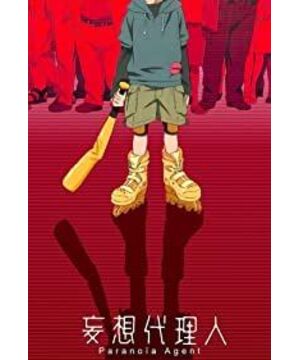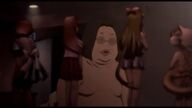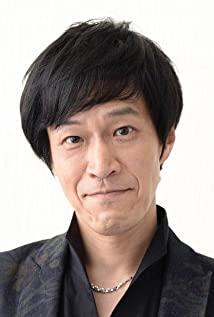What a work of genius. How can someone have such a lot of creativity and imagination?
In just thirteen episodes, the stories of each character are closely interwoven into a Ukiyo-e, and the absurd reality of urban life almost overflows.
A high school student who is addicted to manipulating people's hearts, a junior roller skating teenager caught in the game fantasy of saving the world, a female governess who is sexually repressed and schizophrenic, a waste and cute fat house, a ghost father who is in love, a daughter whose father's image is broken, Misfit housewives who are eager to join the gossip middle-aged women's group, and the animation industry with mutual harm in the workplace (behind the happy cartoon characters are the painting supervisors, screenwriters, and directors who died of overwork... Jin Min's introduction of this industry in such detail shows that there is a lot of resentment. deep), housewives and husbands who resent and parasitize each other, groupies who regard consumer goods as their spiritual sustenance, and netizens who commit suicide together (the suicide episode was very warm).
Their respective pains converged into a black river, flowing over the wasteland of the city...
1. Everyone wants to be a victim
All sentient beings are suffering, and everyone is caught in the dense web of life, unable to move, and can only persecute each other.
want to be a victim. Is it the desire to be freed from persecution? Or the desire to be punished to atone for the irresponsible thought of "wanting to get out"? In any case, instead of struggling with self-blame that can't be said to anyone, it's better to see and feel the bruises all over the body. After becoming a victim, the world will temporarily become tolerant, and you can forgive yourself a little bit. So self-harm is the only way out.
2. Reality without a destination is a destination
No more self-deception. Mayumi's sweet dreams fell apart. Even when he clearly recognizes that reality is a bloody place engulfed by despair, Jin Min still offers the audience a sober antidote. My hero Kim Min. Wake up and suffer the consequences. Despair engulfs fantasy and destroys the entire city; but that's the only way, can no longer shirk responsibility, and must face his despicable life solemnly.
3. "It's almost like postwar."
The police officer Zhushou said as he watched the city razed to the ground by the raging "Baby Boys". The opening song is the mushroom cloud of a nuclear explosion. Through the superposition of these images, Toshi Kon adds another way of interpretation to this fable full of realistic metaphors: the relationship between post-war Japanese society and the history of World War II.
The rebuilt city is the same as it was before it was destroyed, and people quickly find a new Mayumi to numb the pain; there is nothing new under the sun, and mutual harm will never end.
View more about Paranoia Agent reviews











